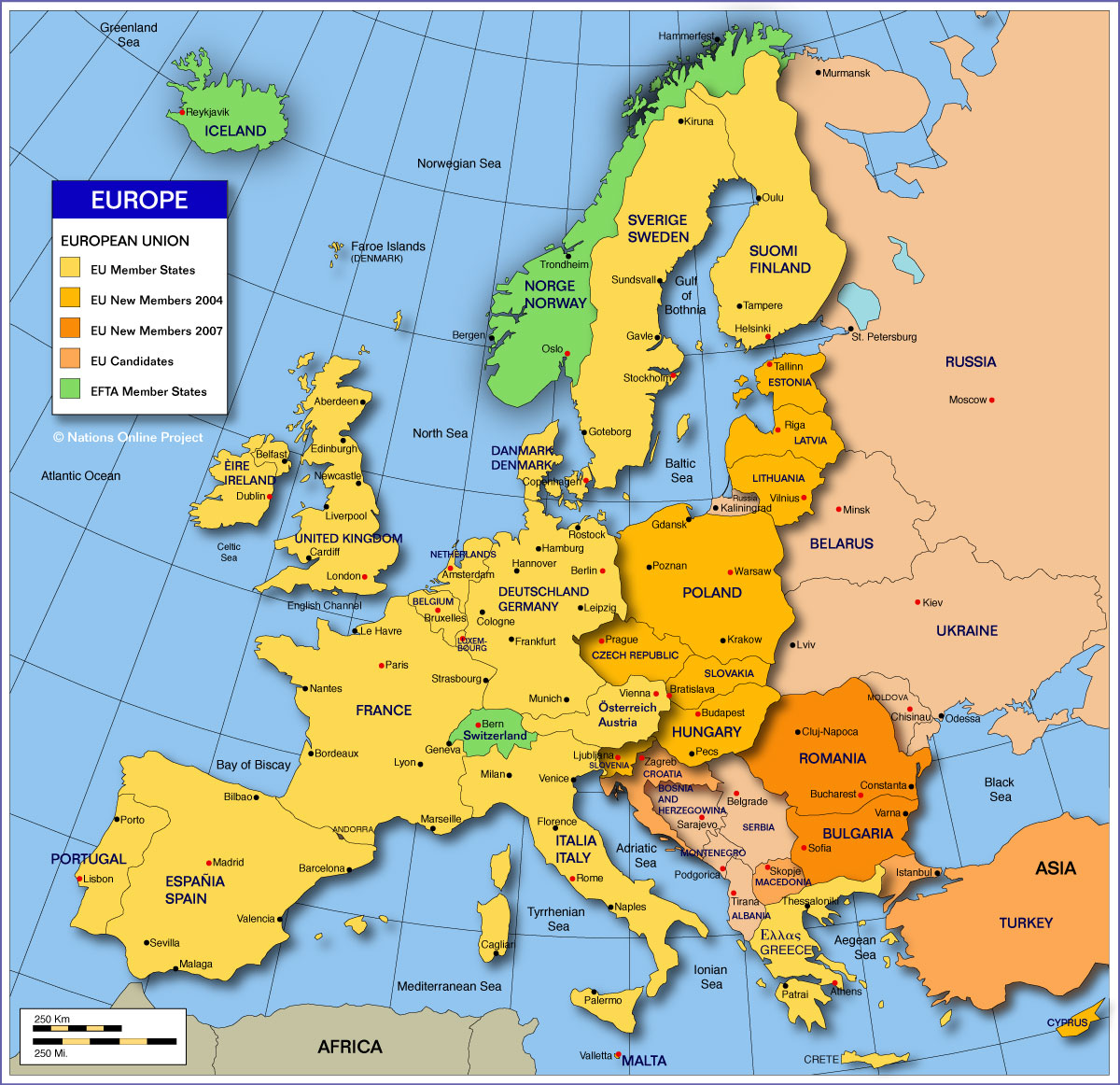Investing
European Financial Stability Facility Downgraded As EU Rescue Plans Dissovle
Published:
Last Updated:
S&P downgrade the European Financial Stability Facility (EFSF) to ‘AA+’ from ‘AAA’. The move raises another barrier to a rescue of the weakest nations in the region. It combines with the S&P downgrade of nine nations’ sovereign debts, which included France’s, and a dramatic series of breaks in discussions between private investors and the Greek government. Source: nationsonline.org
Source: nationsonline.org
The pessimism about the future of Greece and the ability of major nations to raise capital at reasonable rates should rise substantially, and such an increase would be appropriate. There is risk of another cut in the fund’s rating if nations in the region receive another series of downgrades.
As part of the announcement, S&P reported
Following the lowering of the ratings on France and Austria, the rated long-term debt instruments already issued by the EFSF are no longer fully supported by guarantees from the EFSF guarantor members rated ‘AAA’ by Standard & Poor’s, or ‘AAA’ rated liquid securities. Instead, they are now covered by guarantees from guarantor members or securities rated ‘AAA’ or ‘AA+’.
We consider that credit enhancements that would offset what we view as the now-reduced creditworthiness of the EFSF’s guarantors and securities backing the EFSF’s issues are currently not in place. We have therefore lowered to ‘AA+’ the issuer credit rating of the EFSF, as well as the issue ratings on its long-term debt securities.
The EFSF’s credit worthiness is backed by 14 nations within the eurozone. Each of these is believed not to need support to continue to raise capital for deficit financing and general needs.
As The Wall Street Journal points out
Without France and Austria, the sum of triple-A guarantees falls from €451 billion ($572 billIon) to €271 billion, more than three-quarters of which comes from Germany.
Many analysts say that a near-simultaneous bailout of Portugal, Ireland, Greece, and Italy would require a fund of nearly $1 trillion. Much of the money would have to come from Germany. And, Germany may have lost its will to be the de facto bank for Europe. This is particularly true if its leaders believe that the drops in GDP in the weakest nations has accelerated more rapidly than expected and that deficits will rise accordingly. Some economists argue that even with German money that that the austerity requirements that come with bailout dollars by their nature withdraw needed stimulus in countries which have unemployment well into the double digits
It has only take a few days for the sovereign problems in Europe to go from what appeared to be manageable to the brink of a catastrophe
Douglas A. McIntyre
A financial advisor can help you understand the advantages and disadvantages of investment properties. Finding a qualified financial advisor doesn’t have to be hard. SmartAsset’s free tool matches you with up to three financial advisors who serve your area, and you can interview your advisor matches at no cost to decide which one is right for you. If you’re ready to find an advisor who can help you achieve your financial goals, get started now.
Investing in real estate can diversify your portfolio. But expanding your horizons may add additional costs. If you’re an investor looking to minimize expenses, consider checking out online brokerages. They often offer low investment fees, helping you maximize your profit.
Thank you for reading! Have some feedback for us?
Contact the 24/7 Wall St. editorial team.